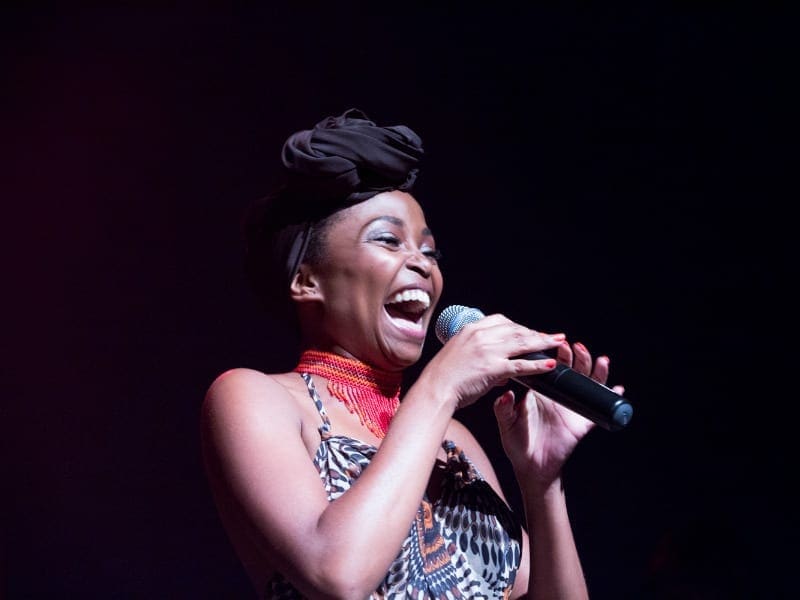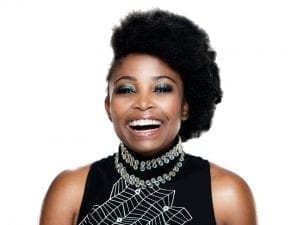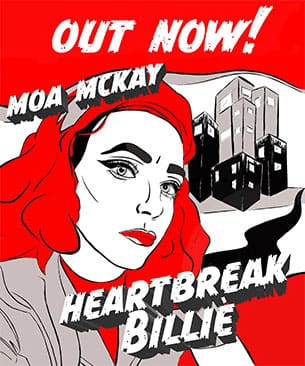“An explosive voice and a captivated audience”. Not her own words, just a facebook bio. But it’s misleading. Not because it’s untrue, she sure has both: it doesn’t do justice to her voice or her audience.
indieBerlin is honoured to interview Nomfusi in advance of her upcoming concert on the 19th March in Auster Club. This South African star writes from the soul, and sings for the world. She uses that voice for more than just singing. And as for her audience, she’s got more than fame on her mind.
You’ve come out of the ‘world music’ scene. Why’s the new album, African Day, different from those years?
“This is a birth of a dream. I’ve had the dream since 2013. Back then, I felt that I had something to say, because I’d started by singing songs like Nzokolo which talk about poverty. I sang about my late mother, who died of HIV/Aids. I sang songs that talked about systems: health systems andjustice systems in post-apartheid South Africa.
I’m African, and I can’t just wash that away.
“But in the world music scene I was left asking myself, am I reaching enough people? Am I contributing enough to the world? World music attracts people who like world music, so it’s quite a niche market. It’s a huge departure for me to work with European artists and different genres.
“I encourage people to come and hear it for themselves. Often people come with their preconceptions of what world music is, then since I’m not so ‘traditional’ and ‘exotic’, the audience is shocked: “we didn’t expect this!”
What are you hoping to achieve with the new album?
“I’m realising that it’s really important to do more than just make music, especially as an African. African people have always been at the bottom of the food chain. I grew up and I thought that’s how things are. As you grow you realise that it shouldn’t be! God has given enough for all humanity, but there’s so much greed. There’s so much capitalism. They’re the ones who’ve painted this painful picture.
If you’re an African, you can’t NOT have something to say. And if you have a platform and a voice, you’re able to be heard, why not use that to change minds?
I didn’t want to be an activist or politician, but I was born with this, I’m forced to say something. Whether I like it or not, I can’t run away. I am African, and I can’t just wash that away.
What’s missing in activism at the moment?
“People here in Germany are often happy to go one step further, to hear your history and giving support. And I love that about this country. The audiences make you feel good about yourself, like you’re making a difference.
As much as we’re told we’re weak – we women are a strong bunch
“However, in the circles I’ve met, with people of all different races, I can see a trend. It’s not that people don’t see what’s happening. They see all the injustices, especially towards the African people. It’s that people aren’t willing to drop their barriers, sacrifice their comfort. They’d give to charities, they support ‘liberated musicians’ with money to ease their conscience.
“I’m not saying that isn’t good. But we know what really needs to be done. We need to take drastic measures, and step out of your comfort zone. I’m trying to open those conversations, to make people not just watch and do things. Even if it means you stop buying that product that’s killing thousands of Africans, however easy it makes your life.”
You’re managed by Delicious Tunes, a project which promotes female artists in the music industry. What’s important about projects like this?
“In the history of music, and of life, really – women, they’ve always been at the raw end of the deal. They’ve been disfavoured by the laws of the system. We’ve seen it before and it’s still happening. So it’s always good to support women, wherever – bring structures to empower them.
“My manager and I have the shared sentiment that we’re a strong bunch. As much as we’ve been told that we’re weaker than men, we know we’re strong people, and very intelligent, especially on a social level.
“I fully believe in a saying that my friend Angelik used to have: that if you educate a woman, you educate a nation. That’s especially true in Africa for mothers who will raise kids. If you’re a liberated woman and you educate your children in the same way, then their generation will be a very important one.”
Interview and editing by Jem Bosatta. Photos by Merwelen van der Merwe.




